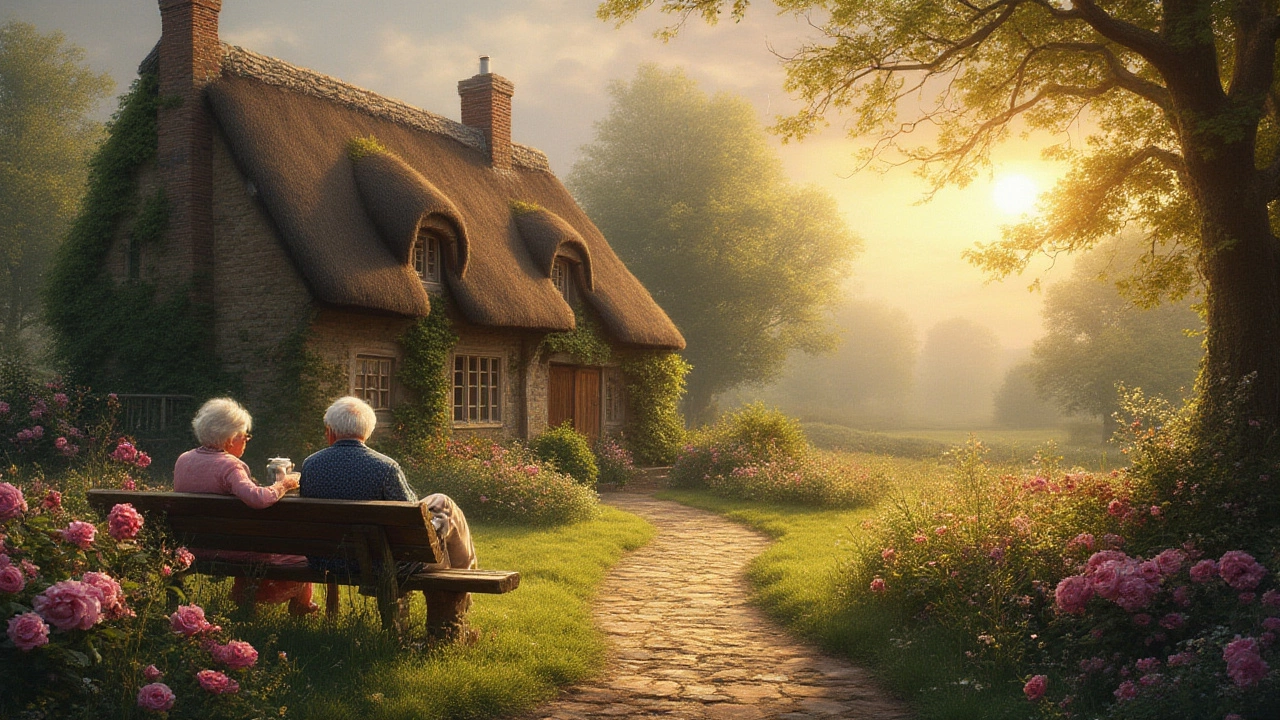Difference Between Cottage and House: What Sets Them Apart?
If you’re hunting for a place to call home, you’ll hear “cottage” and “house” tossed around a lot. They sound similar, but the details matter. Below you’ll find a quick, down‑to‑earth guide that shows how a cottage differs from a typical house, helping you decide which fits your life better.
Size and Layout
A cottage is usually smaller. Think 1‑3 bedrooms, a cosy living room, and a kitchen that feels more like a nook than a commercial space. Many cottages have an intimate floor plan that makes every room feel connected. A house, on the other hand, can range from modest bungalows to sprawling family homes with 4‑5+ bedrooms, multiple bathrooms, and extra rooms like studies or gyms. If you need room for a growing family or a home office, a house generally gives you that flexibility.
Because of their size, cottages often have fewer floors – usually one or two – while houses can be two‑storey, three‑storey, or even have a loft. The compact nature of cottages makes them easier to heat and maintain, but it also means you might have to get creative with storage.
Style and Architecture
Cottages carry a historic, rustic vibe. You’ll find thick stone walls, thatched roofs, exposed beams, and a front garden that feels like a small paradise. They’re built to blend with the countryside, so you often see them tucked in villages or near the coast. Houses are more varied. Modern houses can be sleek and minimalist, while older houses may have Victorian or Georgian details. The exterior style usually reflects the neighbourhood’s overall look rather than a single tradition.
Inside, cottages favor warm, natural materials – think wooden floors, open fireplaces, and a cosy, lived‑in feel. Houses might have a mix of finishes, from polished tiles to carpeted rooms, depending on the owner’s taste and the era of construction.
Location and Lifestyle
Cottage locations are typically rural or semi‑rural. You’re closer to fields, forests, or the sea, which means more peace but also longer drives to schools, shops, and work. If you love walking trails, gardening, or just escaping city noise, a cottage suits you. Houses sit in a wider range of settings – suburbs, towns, even city outskirts. This gives you easier access to amenities, schools, and public transport, making daily life more convenient.
The lifestyle difference comes down to pace. Cottage living often means slower mornings, quiet evenings, and a stronger connection to nature. House living can be faster‑paced, with more social events in the neighbourhood and quicker access to nightlife or work hubs.
Cost and Maintenance
Because cottages are smaller and often older, the purchase price can be lower than a comparable house, especially in popular rural areas. However, older cottages may need upgrades – new wiring, insulation, or roof repairs – which can add up. Houses, particularly newer builds, might have higher upfront costs but lower immediate maintenance needs.
Running costs differ too. Heating a small cottage is usually cheaper, but if it’s not energy‑efficient, bills can climb. Larger houses with multiple zones require more energy to keep comfortable. When budgeting, factor in both the mortgage price and the ongoing upkeep.
Buying Considerations
Ask yourself what you value most. Need space for kids, a home office, or guests? A house likely checks those boxes. Want a charming escape, low‑maintenance yard, and a strong sense of character? A cottage probably wins. Also, think about future plans – will you stay long‑term or use it as a holiday spot? A cottage can double as a weekend retreat, while a house may suit a permanent family home.Checking local planning rules is wise. Some villages restrict modifications to cottages to preserve the look, whereas houses in newer developments often allow more flexibility for extensions.
Bottom line: a cottage offers size, charm, and a slower pace; a house offers space, flexibility, and convenience. Knowing these differences helps you pick the home that matches your lifestyle, budget, and long‑term goals.

Cottage vs Small House: Key Differences, Meaning & Living Experience
Cottages and small houses both sound cozy, but they’re not the same. Explore why they’re different, what makes a place a cottage, and how living in each feels.
Continue Reading